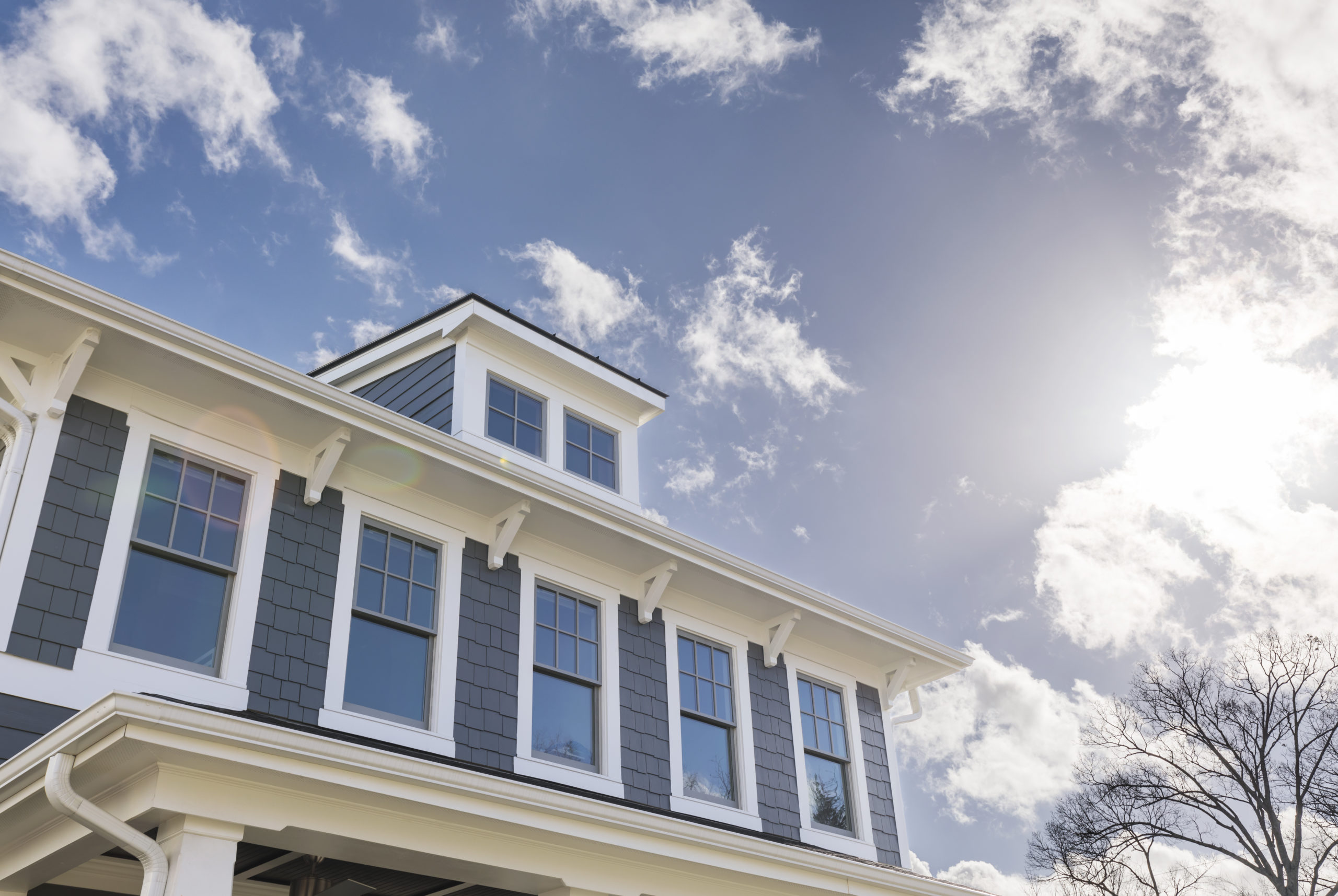Does your home need new windows? Whether your current windows are old, showing signs of wear, or lack efficiency, there are many benefits to replacing your windows. Windows come in a variety of styles and framing materials. The most common choices lately are vinyl and fiberglass.
Both vinyl and fiberglass windows come in a variety of colors, are very durable, and are more energy efficient than wood or aluminum. But one advantage of fiberglass windows is their life expectancy. How long do fiberglass windows last? Here’s what you can expect.
Fiberglass Windows Can Last for 40 Years or More
One of the biggest benefits of fiberglass windows is that they can last for at least 30-40 years. That’s a whole decade longer than the average life expectancy of vinyl windows. However, the 40 year estimate is for high quality fiberglass windows. It’s important to acknowledge that there is a range in terms of quality and cost of windows. The higher quality the windows are, the longer they will last.
Why Fiberglass Windows Last so Long
Fiberglass windows are extremely durable because of the way they are manufactured. The process of creating fiberglass is called pultrusion. Strands of fiberglass are woven together, coated in a proprietary polymer resin, and then pulled through an industrial strength dye. This creates an extremely strong framing material that stands the test of time.
How Windows Age
There are a few different ways that windows show signs of aging:
- They are difficult to open and close. If you struggle to open and close your windows, it usually indicates that they are not in good condition. They are most likely warped or damaged in some way.
- You feel drafts of air near your windows. Do you feel cool or warm air coming in around your windows? Are there certain rooms or areas of your home that feel cooler or warmer than the rest of your home? These are all signs that your windows are allowing air to pass through.
- Visible damage to the window frames. Sometimes you see actual corrosion or deterioration of the window frames. They also fade, crack, and warp over time.
- Condensation between the panes of glass. Insulated windows have two panes of glass with space in between them. If fog or condensation is visible between the panes, it means they are no longer insulated.
- You hear an increase in outside noise. Do you hear more noise from the street lately? It could be that your windows have gaps around the frames that are letting noise in. This is another sign that the seal or insulation is compromised.
If you notice any of the above signs, you should have your windows replaced with new, energy-efficient fiberglass windows.
How do fiberglass windows age?
Fiberglass windows will now show the typical signs of age that other windows will show.
- No warping. Fiberglass does not swell and contract with changes in temperature, so there is no warping of the window frames.
- Stays strong and sturdy. Fiberglass is an extremely solid material. It won’t crack, bend, or corrode over time.
- Remains air tight. There won’t be any gaps for air to get through your fiberglass windows. They remain air tight for the full extent of their life span. Fiberglass windows are also thoroughly insulated to minimize heat transfer.
Zen Windows Provides High Quality, Affordable Fiberglass Windows
If you want to experience the benefits of high quality fiberglass windows at a more affordable price, Zen Windows can help. Our installation process and strategic business practices make it possible for us to offer top quality fiberglass windows for less than other window installers. Whether you need to replace your old windows or you want to start with the best windows in your new home, Zen Windows backs up our installation and materials with a lifetime warranty.
Call (763) 286-6871 today to schedule a window consultation or request a online quote. We look forward to helping you improve your home with new windows.









